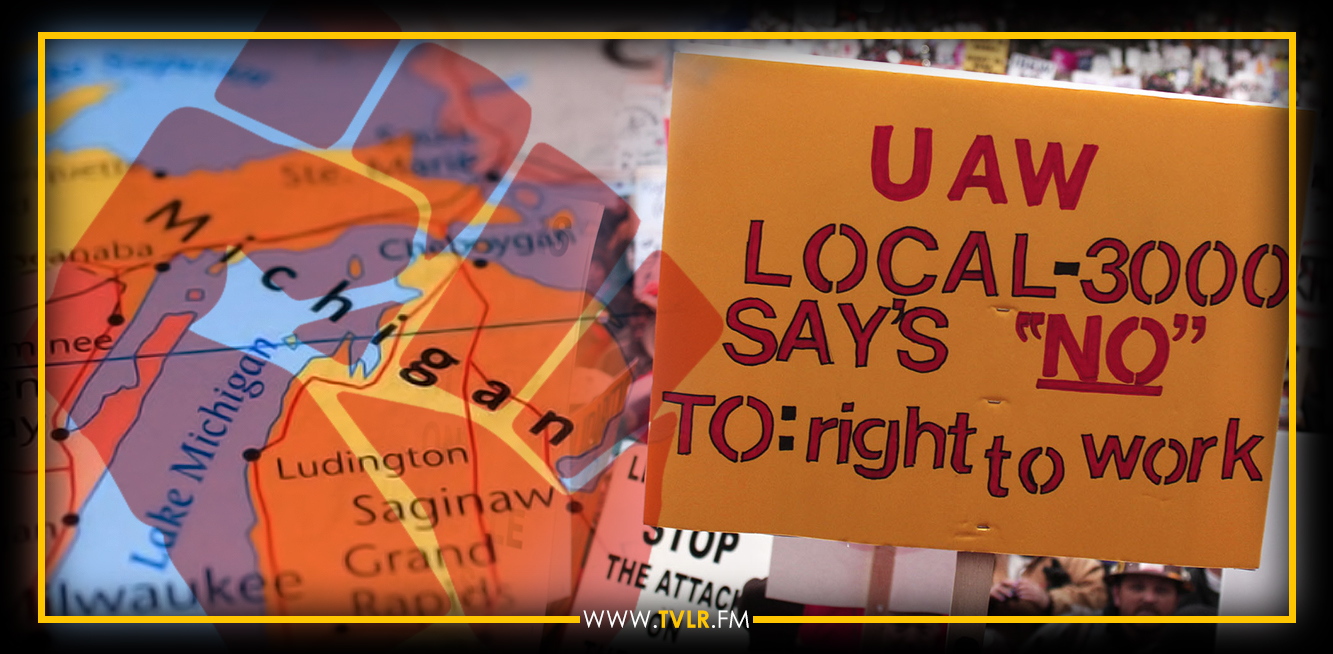everal key victories for the labor movement have occurred in the State of Michigan, including the reinstitution of prevailing wage laws and the repealing of the state’s “Right To Work” system (which Alabama currently also employs). It is well known by workers in the labor movement that “Right To Work” is fundamentally anti-worker, and effectively acts as a stumbling block for unions.
To discuss what repealing “Right To Work” means for Michigan, state representative Joey Andrews joined The Valley Labor Report last week.
“‘Right To Work’ has got to be one of the best messaging campaigns that the Right has ever come up with,” Andrews commented. “As you guys are well aware, ‘Right To Work’ has nothing to do with ‘rights’ or ‘working,’ it has everything to do with preventing collective bargaining from happening effectively. We always used to nickname it ‘Right To Freeload,’ which I think is more descriptive of what it actually does. Once you explain to somebody that all ‘Right To Work’ does is enable people to benefit from the collective bargaining of the union and the benefits that it’s achieving without even having to pay for it, I think it really triggers a lot of peoples’ fundamental fairness feelings at that point. I’ve talked to a loud of Republicans who are baseline ‘anti-union,’ but you explain to them what ‘Right To Work’ does and their reaction is immediately ‘well that’s not fair.’”
Representative Andrews believes that speaking personally with people, even those with whom he disagrees, and breaking down for them what “Right To Work” actually accomplishes is at least partially responsible for this governmental turnaround with Michigan repealing the system.
We hope to see other states like Alabama follow Michigan’s example in this.
Watch the full discussion with State Representative Joey Andrews on YouTube:
